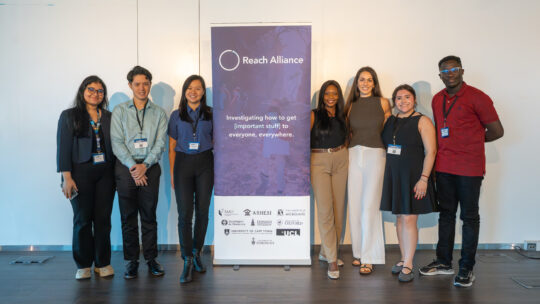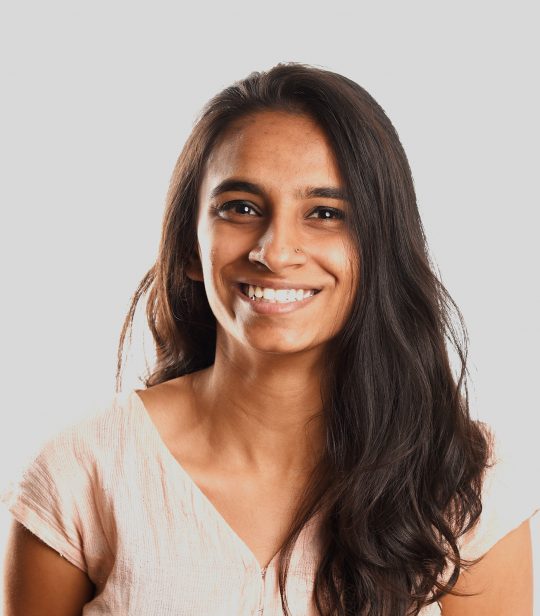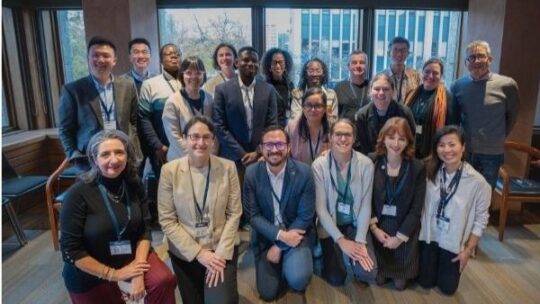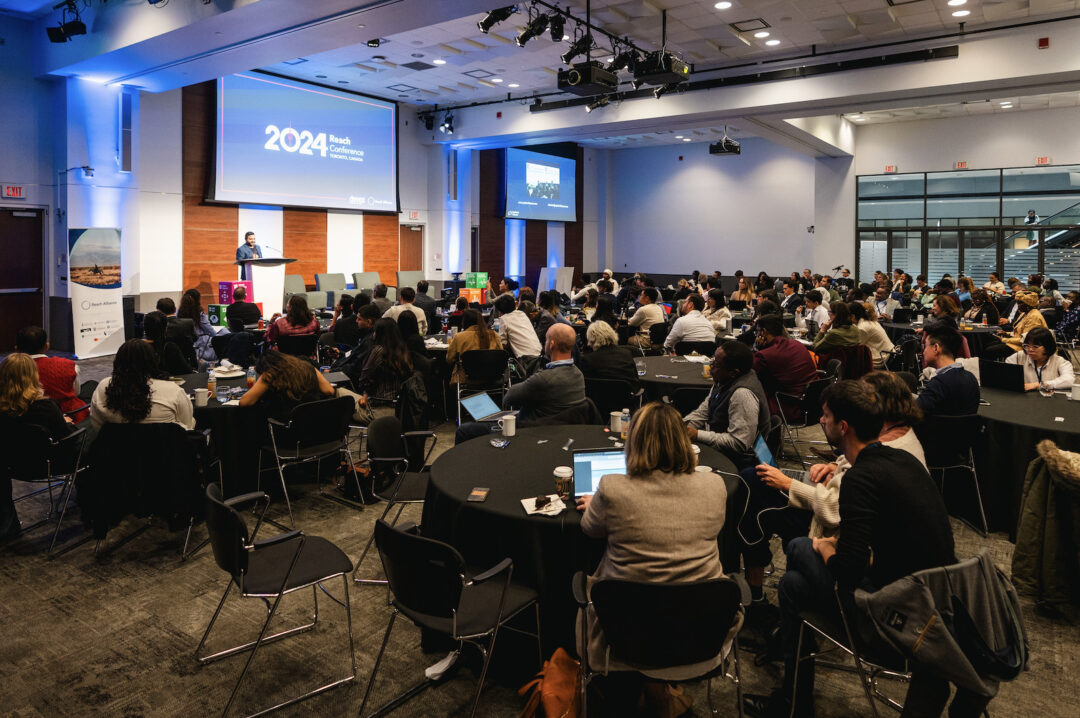
Over 200 passionate thought leaders, researchers, and practitioners from around the world came to the recent Reach Conference in Toronto to explore how we can drive meaningful change toward the United Nations’ Sustainable Development Goals (SDGs). This year’s event buzzed with energy, especially when Marin MacLeod, Reach Alliance’s executive director, announced that Howard University has joined the Reach Alliance as the first US-based university partner.
The conference opened with a moving musical performance of an original piece called Reach that University of Toronto Music’s Hsiu-Ping Patrick Wu composed for the conference. The composition for a string quartet conveyed the dynamic action of “reaching,” setting the tone for and anticipating the spirit of the conference — upward striving, growth, and connection.
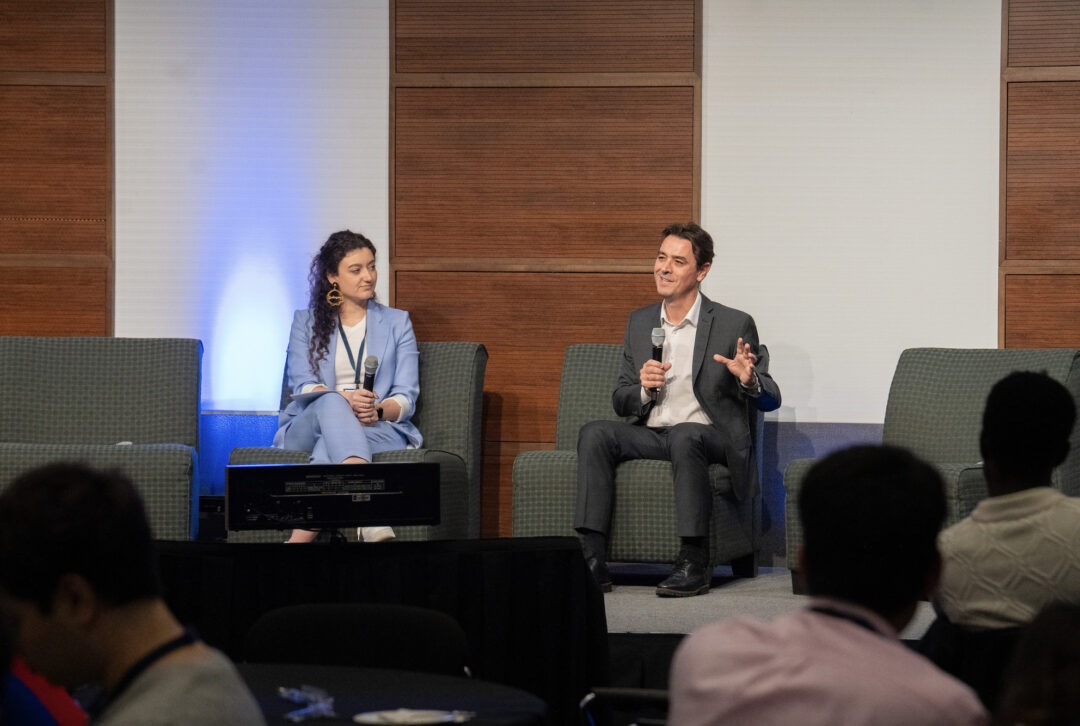
Tully Mahr introduced keynote speaker Wolfgang Fengler of World Data Lab who spoke passionately about data’s critical role in driving change to reach the last billion. He also gave accessible examples of dynamic data visualization.
From big data to localization, Aissatou Diajhate and panelists from Ashesi University, the University of Cape Town, and the University of Toronto discussed how development efforts must be tailored to local realities if they’re going to have impact. Reach authors explore these themes further in this Devex opinion article A spotlight on last-mile localization in development.
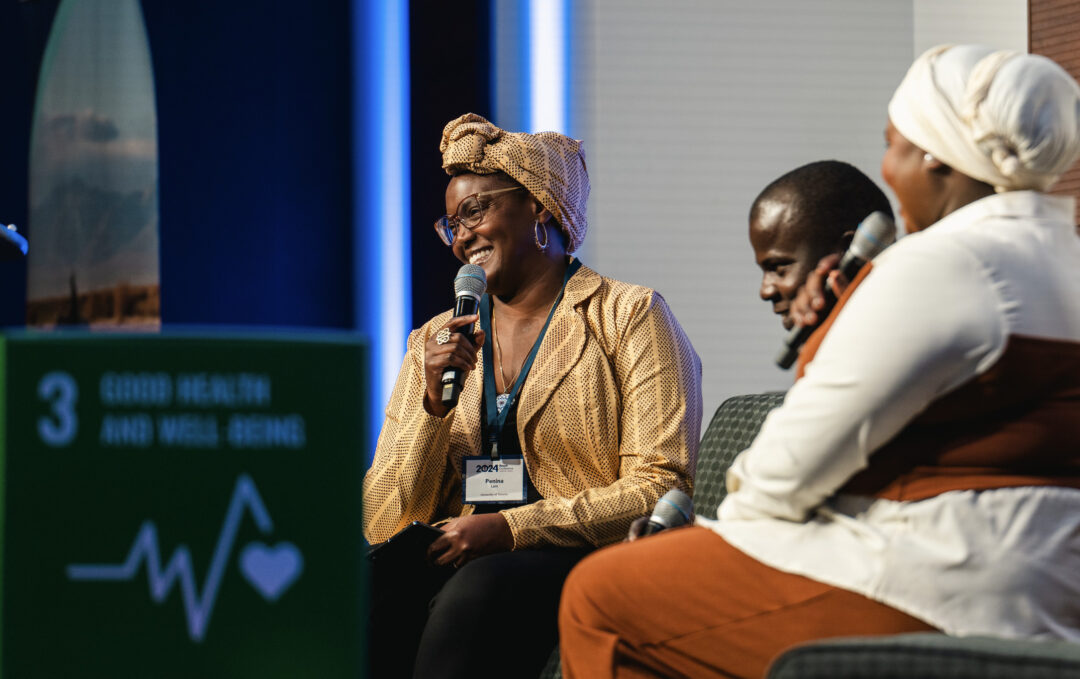
The idea and practice of accountability resonated deeply throughout the sessions. In an intergenerational fireside chat, Dr. Penina Lam, Jemila Abdulai, and Kennedy Ojowi discussed how emerging leaders can forge accountable futures. What does it mean to be accountable—not just to stakeholders, but to the communities we aim to serve? The wise practices approach, an alternative to the traditional concept of “best practices” outlined by Brian Calliou and Cynthia Wesley-Esquimaux, was highlighted as a model that values local wisdom alongside modern strategies for sustainable growth, ensuring that leadership not only drives economic development but also preserves cultural identity and community values.
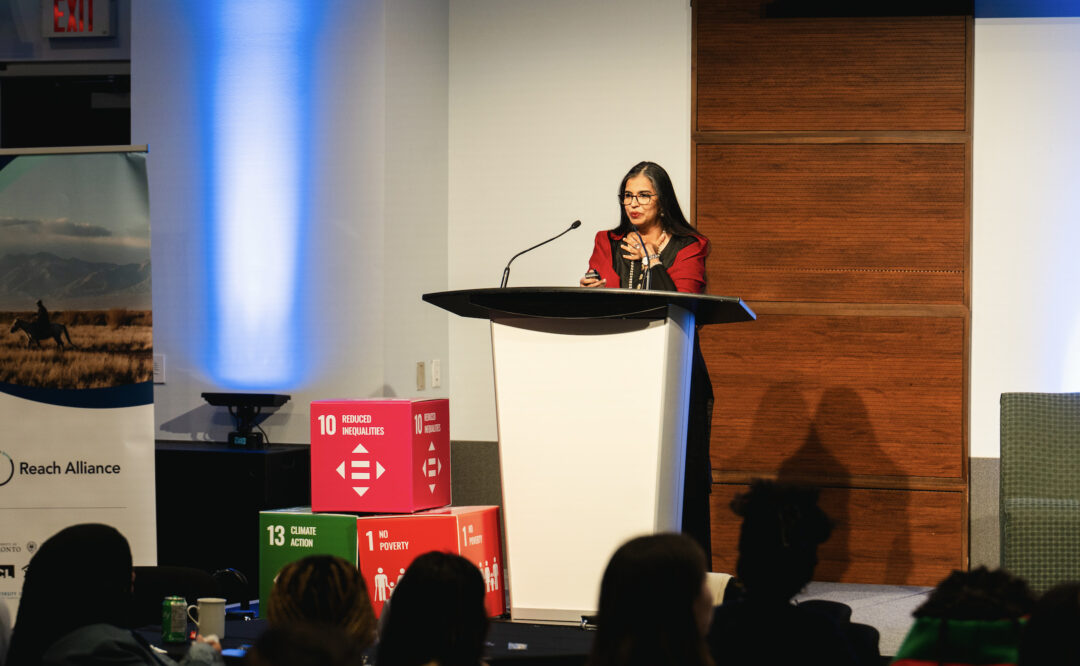
Our esteemed conference speakers, including experts, thought leaders, and emerging leaders, emphasized the need for technology to be more inclusive and community-centered. Aparna Uppaluri argued that “Accountability is the journey from invisibility to inclusivity.” The panel on Building Inclusive Digital Public Infrastructure, insisted that Digital Public Infrastructure (DPI) should not only improve efficiency but also prioritize equity, dignity, and co-creation. This idea was further reinforced by Abhilash Mishra, who highlighted the critical need for community-centred implementation of digital health tools. He stressed that technology must be accessible, inclusive, and co-designed with the communities it is meant to serve.
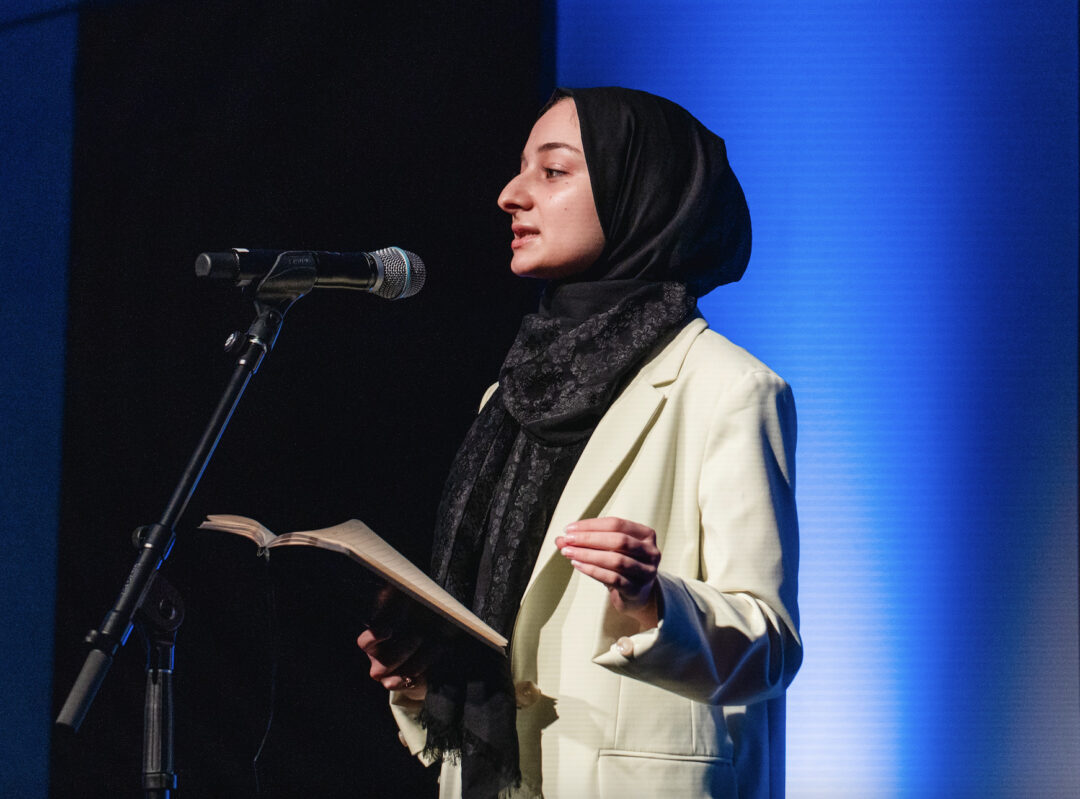
All communities have a role and a responsibility to engage in the work of reaching the hardest to reach. Conference attendees heard from University of Toronto’s Zoha Sojoudi, whose spoken word piece reminded us that accountability starts with the individual. She challenged everyone in the room to pause and reflect:
This is the essence of accountability
To do our part
And do the best within our bounds
Painting and repainting our reality
While ascending and transcending through self-building
And to put community at the core
Their voices at the centre
Check our intentions along the way
And ask ourselves — who is all of this for?
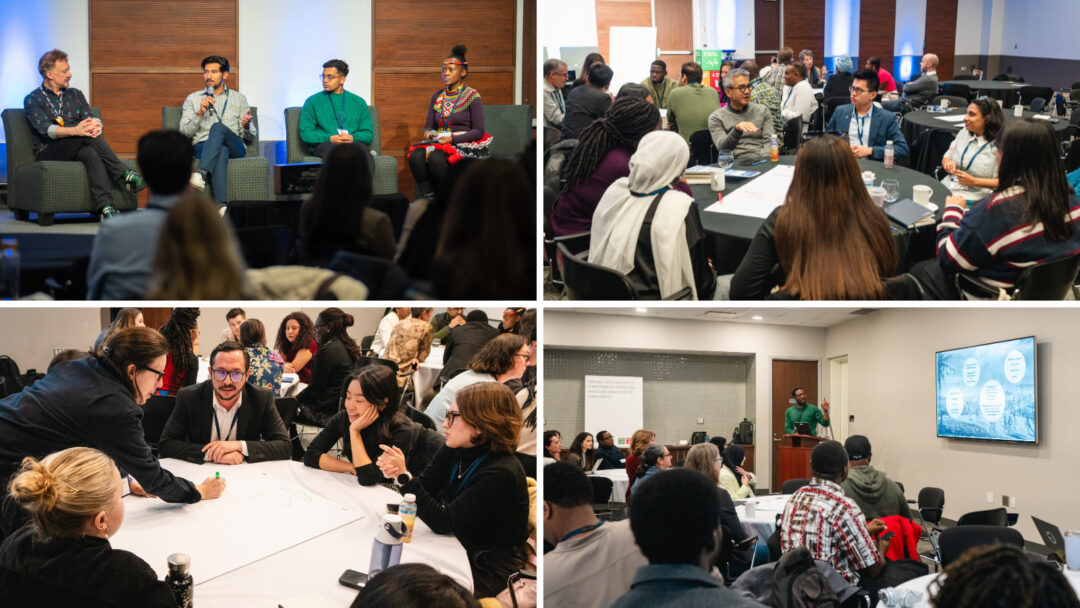
Community-led panel discussions and breakout sessions on the last day brought together diverse voices to explore climate justice, food systems transformation, and housing solutions for refugees. These collaborative sessions highlighted the importance of integrating community perspectives into solutions for global challenges. We also heard thought-provoking panel conversations on how to centre community voices in climate resilience strategies, work together to address rural healthcare disparities, and leverage Indigenous knowledge and practices to create impactful solutions for pressing global issues. These sessions reinforced the idea that transformative change happens when we listen to and work alongside the communities most affected by these challenges, ensuring that solutions are both relevant and effective.
As the conference closed, Nice Cailie Ineza shared her reflections on the event’s inspiring impact: “To my fellow researchers, thank you for seeing what everyone sees but thinking what nobody has thought.”
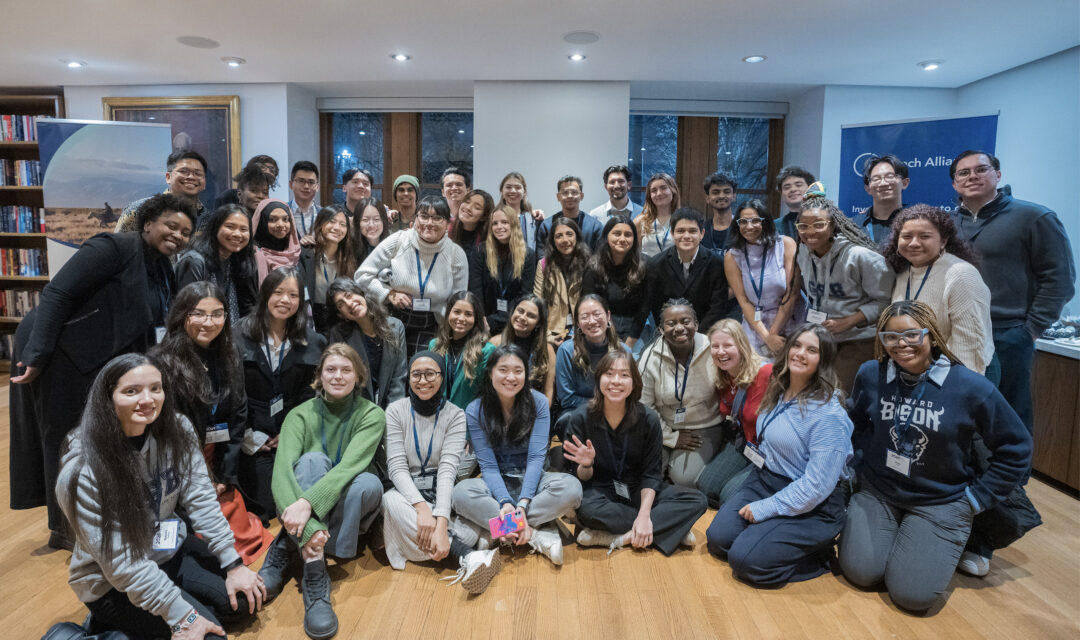
Looking ahead to the 2025 Reach Conference at Singapore Management University, we are filled with excitement and anticipation for the next chapter in our shared journey of action, innovation, and accountability.
In partnership with:
University of Toronto, Tecnológico de Monterrey, University College London, Oxford University, Ashesi University, University of Cape Town, University of Melbourne, Singapore Management University, Howard University, and the Mastercard Center for Inclusive Growth.
